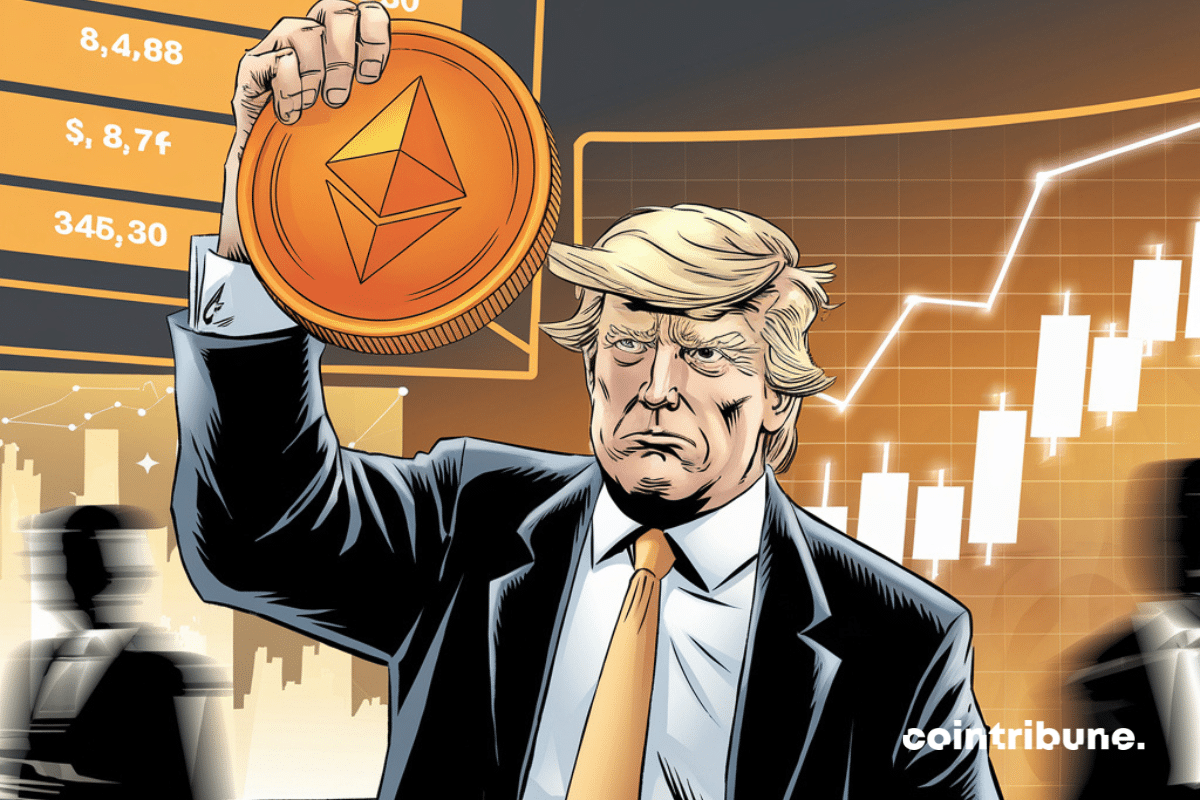Bitcoin is experiencing a major evolution that could redefine its role in the financial ecosystem. Indeed, for a long time considered merely a store of value, it is now asserting itself as a true generator of yield. This transformation is driven by a growing adoption in the financial strategies of companies, encouraged by the opportunities offered by the integration of innovative yield solutions. Thus, CoinShares, a key player in crypto investment, predicts that this dynamic will reach a decisive turning point in 2025. This shift goes beyond the internal mechanisms of the crypto sphere. It is amplified by the rise of digital payments and initiatives from large companies like Ferrari and Amazon, which are actively exploring the integration of bitcoin into their operations.
Archive December 2024
The American economy has crystallized tensions for several months between two deeply divergent political visions, embodied by Joe Biden and Donald Trump. On one side, the current president emphasizes stabilizing management, based on international cooperation and support for the middle class. On the other, Donald Trump promises radical reforms, focused on protectionist policies and tax relief for the wealthy. Thus, these oppositions go beyond national economic choices, but reflect orientations that could reshape global trade balances.
All eyes are on Beijing, where a major conference is taking place that could redefine China's economic direction until 2025. As the world's second-largest economy faces a lasting real estate crisis, weakened domestic consumption, and renewed trade tensions with the United States, this annual meeting takes on critical importance. At a time when the global economic balance remains precarious, the decisions made here will have repercussions far beyond China's borders.
On the crypto scene, Trump exchanges stablecoins for ETH. A bold move of 5 million that brightens his treasury of 73 million in digital assets.
Salvador recently announced a strategic partnership with Argentina to strengthen crypto regulation. This collaboration is part of a broader initiative by El Salvador to establish similar agreements with over 25 countries.
In a context of increasing volatility, Bitcoin is at a strategic turning point. The latest analyses from CryptoQuant reveal leading indicators that could transform investor outlooks, with significant bullish movement potential.
Solana shines, Ethereum wobbles: 7,625 new talents for the former, Asia at the top and India shines in a borderless crypto world.
The Syrian civil war has revealed an unexpected new use of cryptocurrencies in armed conflicts, with increasingly close ties between modern financial technologies and geopolitical issues. A recent survey by the blockchain analysis company Chainalysis sheds light on the involvement of the rebel group Hay’at Tahrir al-Sham (HTS), which reportedly used cryptocurrency donations to fund a decisive offensive against the regime of Bashar al-Assad. These anonymous transactions, which have become common in conflict zones, raise questions about the role of these assets in crisis contexts and the risks they entail.
In a constantly changing financial environment, BlackRock, the world's largest asset manager, is taking a key step through the proposal of a new strategic direction. The company, managing $11.5 trillion in assets, now recommends a portfolio allocation of between 1% and 2% in bitcoin. This positioning marks a decisive step in the way institutions approach these assets. Such an initiative sparks a dual interest. On one hand, it reflects the growing recognition of bitcoin as a distinct asset class, with unique diversification potential. On the other hand, it raises questions about how this integration could redefine investment strategies and influence the dynamics of traditional portfolios.
Frank Richard Ahlgren III, an early bitcoin investor, was sentenced to two years in prison for falsifying his tax returns to conceal capital gains from the sale of BTC.









